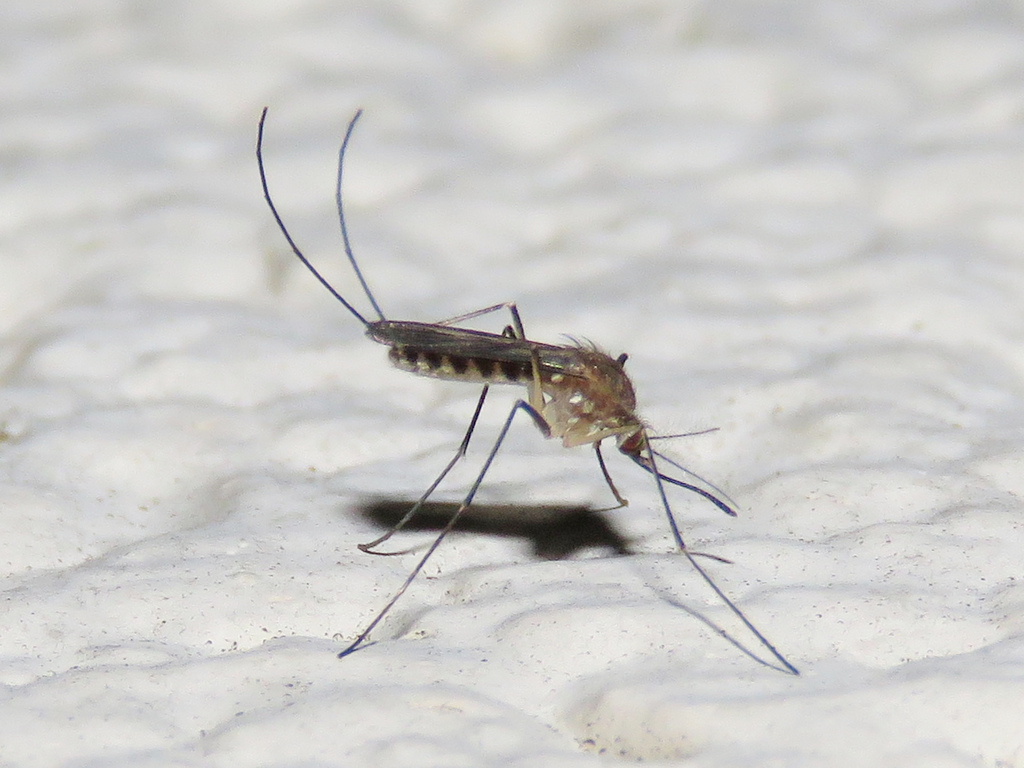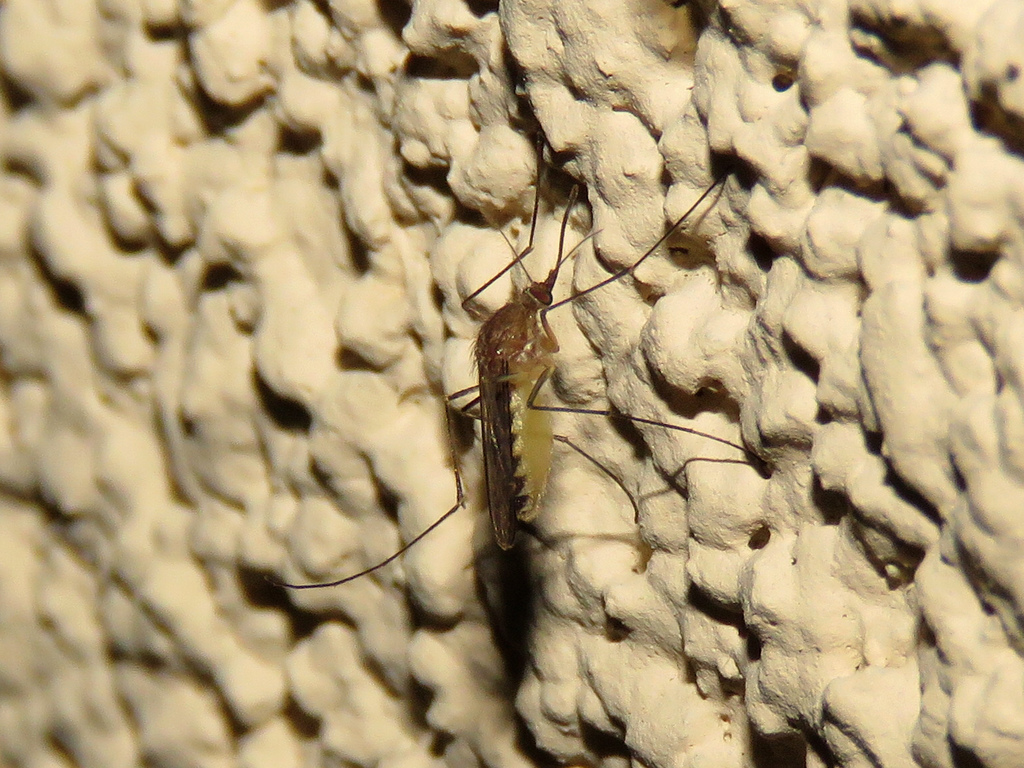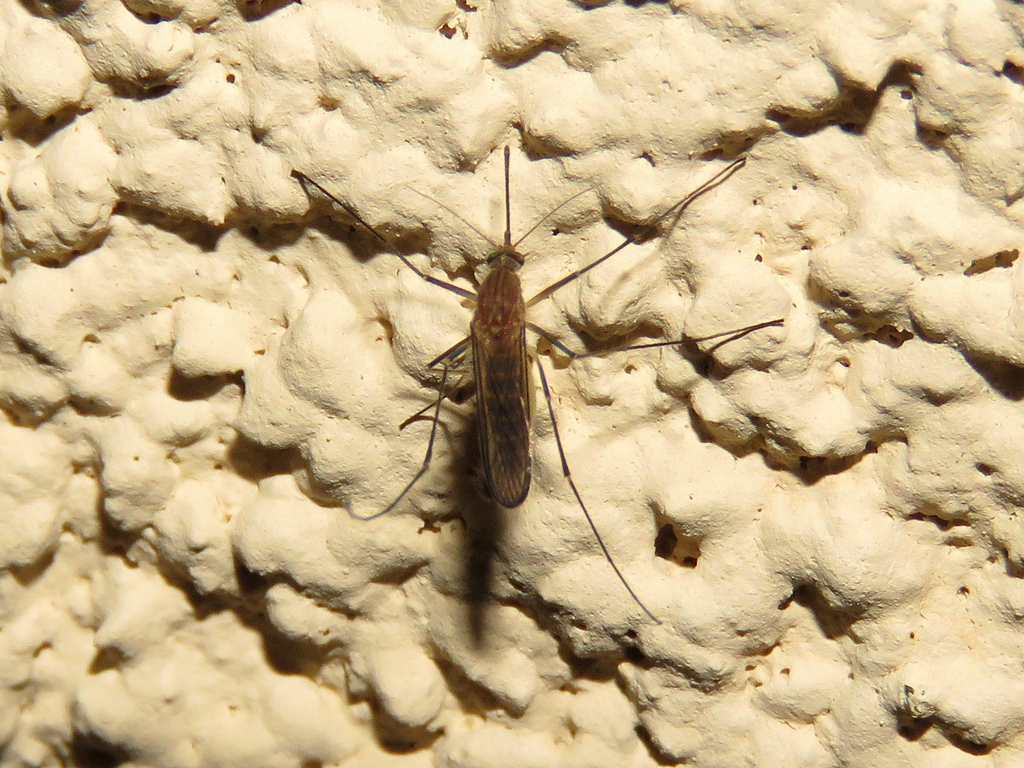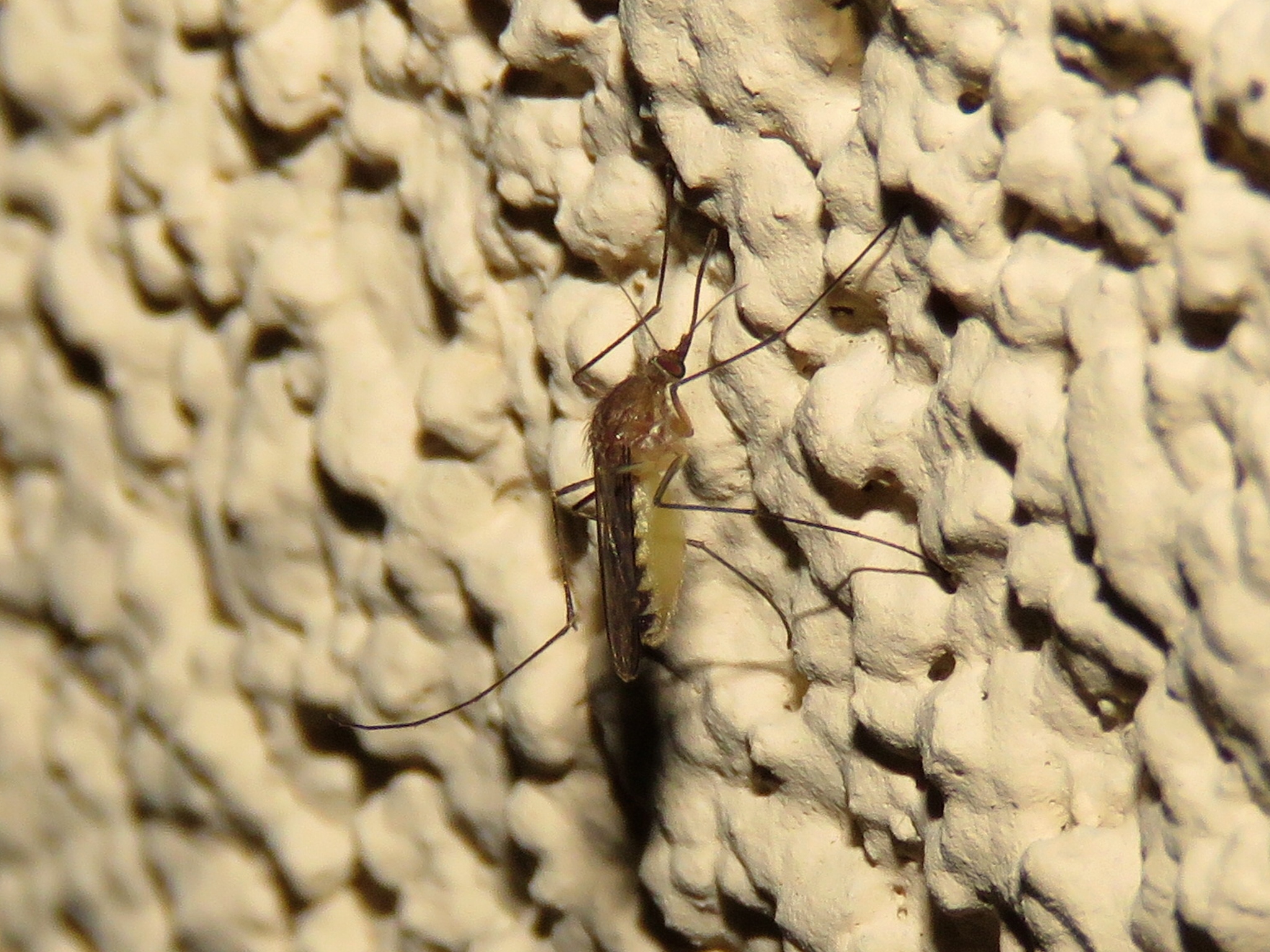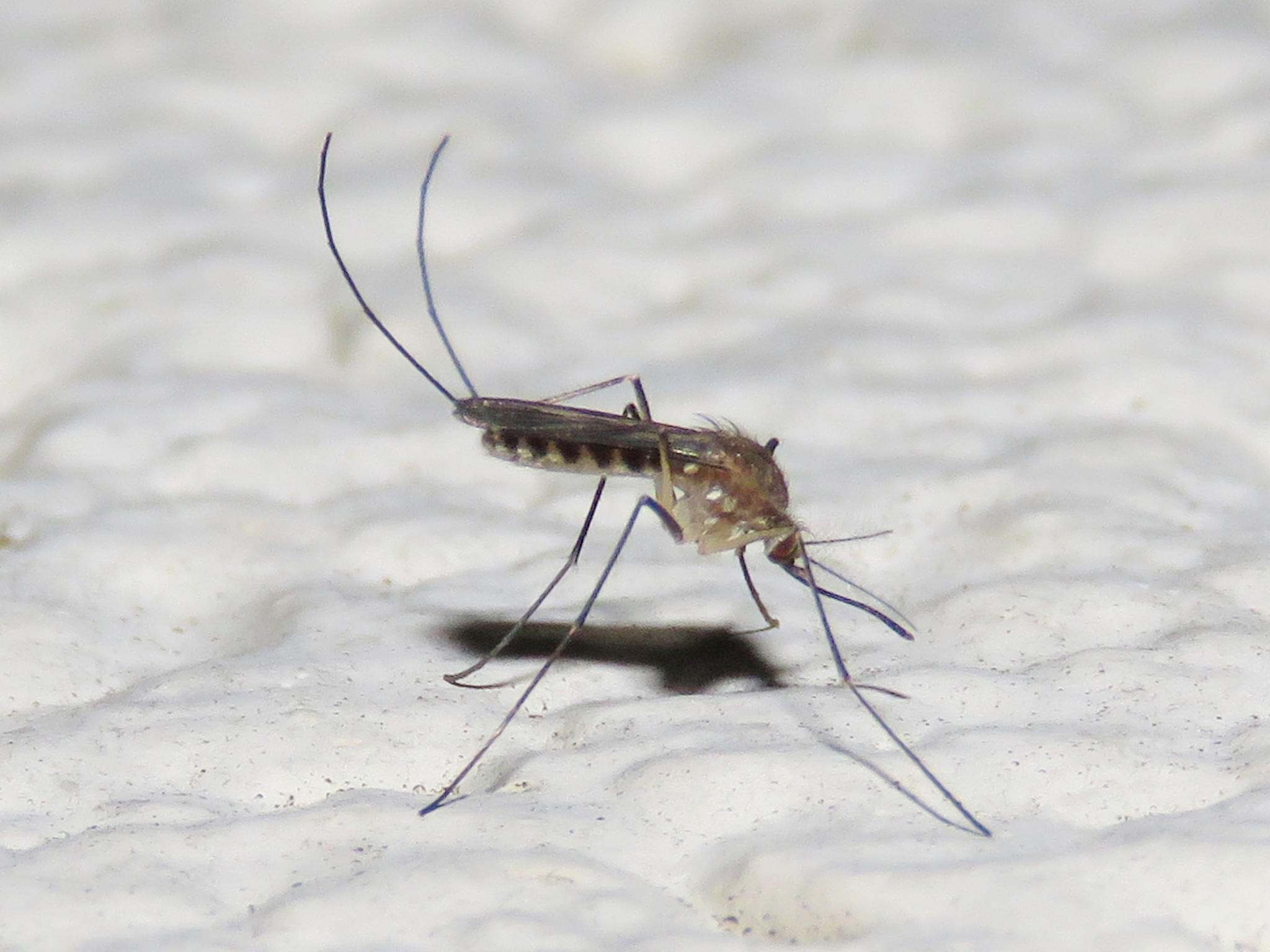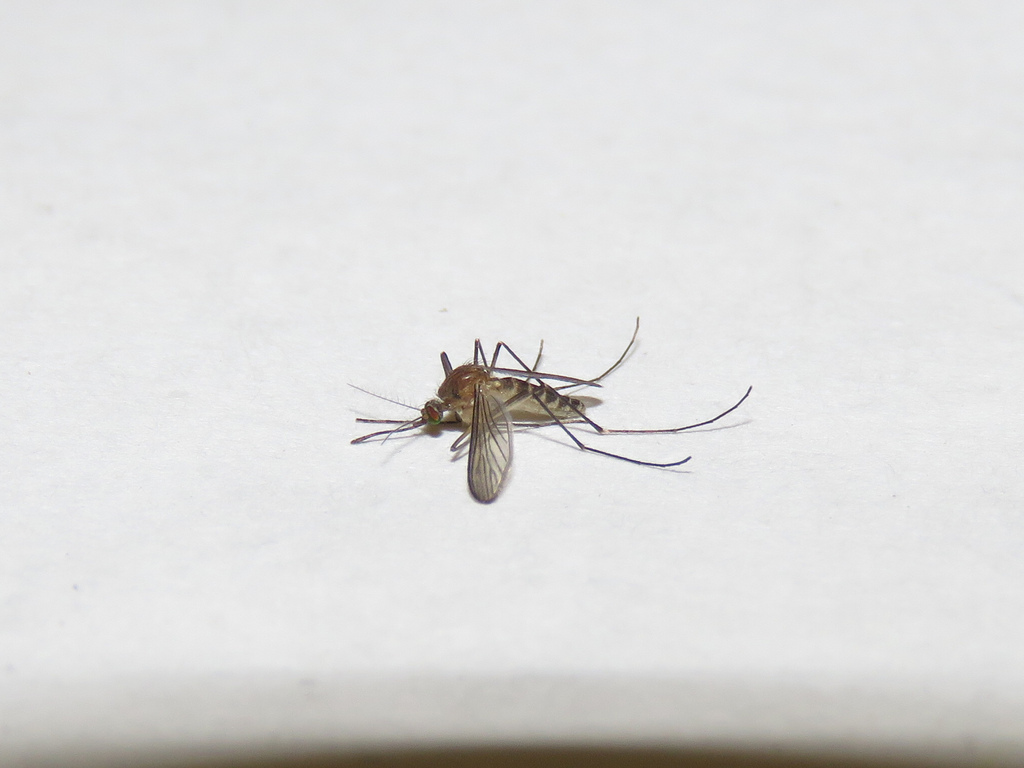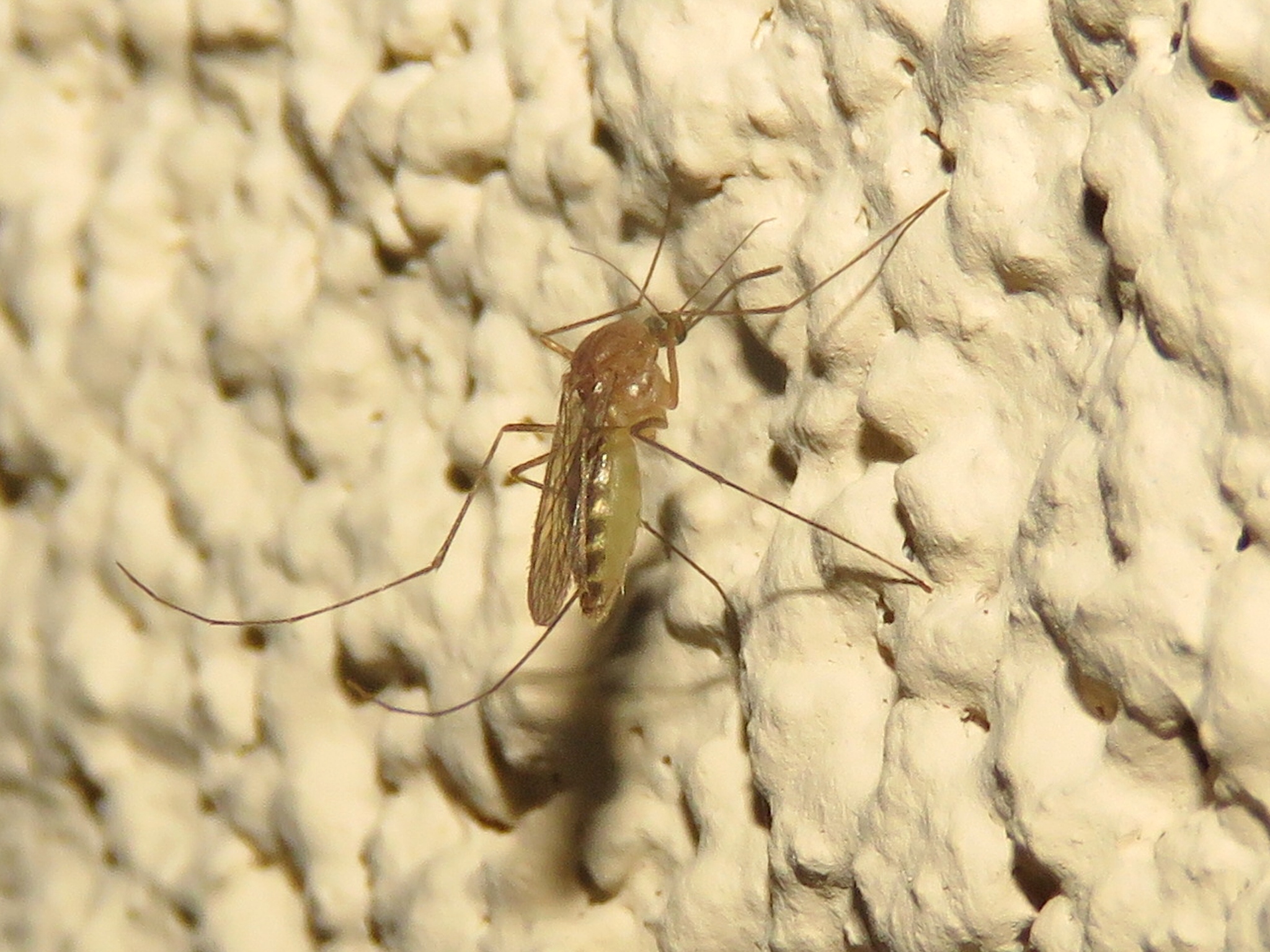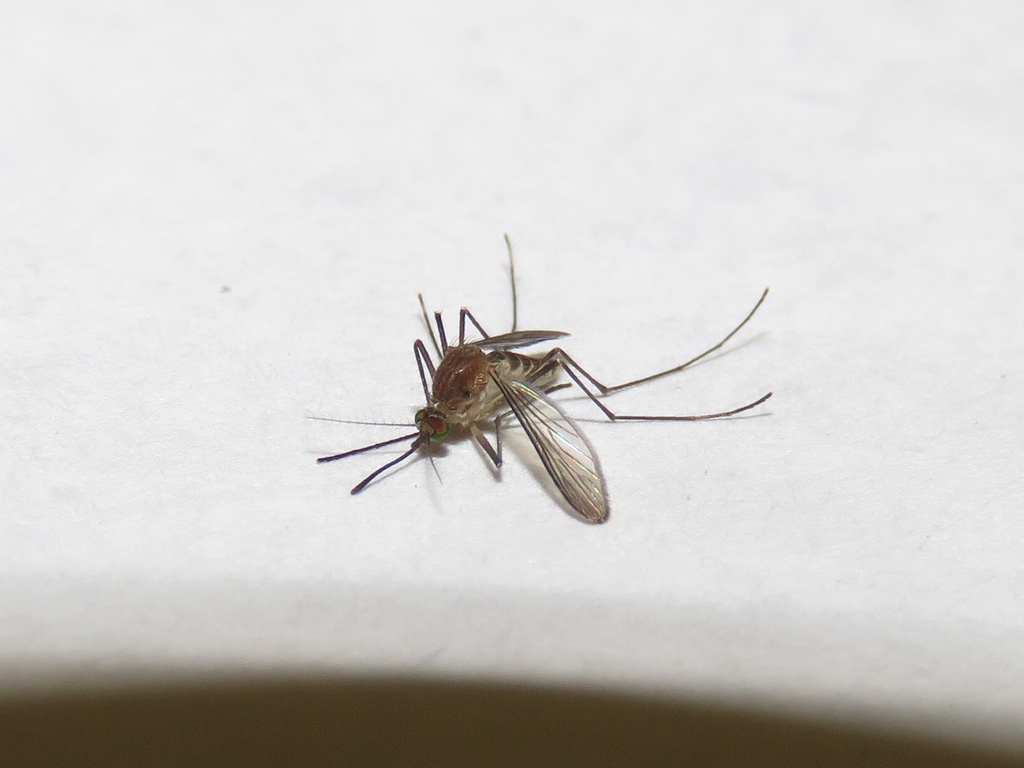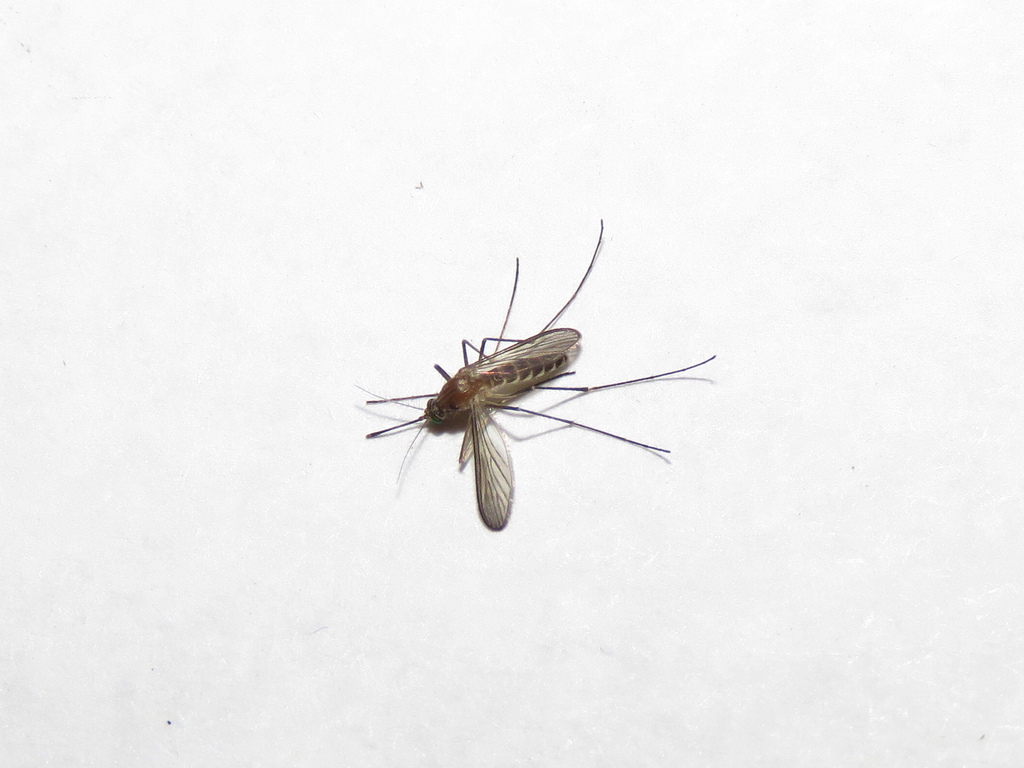Map Snapshot


7 Records
Status
Uncommon.
Description
Each abdominal segment of Culex territans has pale apical bands. All other members of the genus Culex in our area have pale basal bands on each abdominal segment.
Relationships
This species takes its blood meals from reptiles and amphibians and is not known to bite humans.
Seasonality Snapshot
Source: Wikipedia
| Culex territans | |
|---|---|

| |
| Scientific classification | |
| Domain: | Eukaryota |
| Kingdom: | Animalia |
| Phylum: | Arthropoda |
| Class: | Insecta |
| Order: | Diptera |
| Family: | Culicidae |
| Genus: | Culex |
| Species: | C. territans
|
| Binomial name | |
| Culex territans Walker, 1856
| |
| Synonyms | |
| |

Culex territans, or the Northern Frog-Biting Mosquito, is a species of mosquito found throughout North America, Europe, North Africa, and the Arabian Peninsula.[1][2][3]
Ecology
[edit]Adult female Culex territans overwinter in protected, humid, underground environments like caves.[4] In northern Europe, overwintering females are found in caves together with Culex pipiens, Culex torrentium, and Culiseta annulata.[5]
Larvae can be found in clean ponds with plenty of vegetation.[4]
Feeding behavior
[edit]Host preference
[edit]Females of this species can feed on many vertebrates, but most frequently feed on reptiles and amphibians, preferring frogs.[6][2][7][8]
Finding hosts
[edit]This species is attracted to the calls of frogs.[7] Light is necessary for host-seeking as they do not feed in complete darkness.[9] Body temperature is not an important cue in host-seeking, which makes sense as their primary hosts are ectothermic.[10]
Medical and veterinary importance
[edit]Since they mainly feed on frogs, they do not pose a direct threat to human health in terms of vectoring pathogens. However, they have been found to be infected with West Nile Virus and Eastern Equine Encephalitis virus and may occasionally feed on humans, so they can potentially be of public health concern.[2]
Adult female Cx. territans have been found to harbor various pathogens such as anuran trypanosomes, ranaviruses, and filarial worms.[2] It has also been shown capable of mechanically transmitting the spores of chytrid fungus between frogs.[8]
References
[edit]- ^ "Culex territans Walker, 1856". www.gbif.org. Retrieved 22 December 2024.
- ^ a b c d "EENY-803/IN1394: Northern Frog Biting Mosquito Culex territans (Walker 1856) (Insecta: Diptera: Culicidae)". Ask IFAS - Powered by EDIS. Retrieved 22 December 2024.
- ^ Richard F. Jr. Darsie, Ronald A. Ward, Chien C. Chang, Taina Litwak. (2004). Identification and Geographical Distribution of the Mosquitoes: of North America, North of Mexico. University Press of Florida.
- ^ a b Andreadis TG. Identification Guide to the Mosquitoes of Connecticut. Connecticut Agricultural Experiment Station; 2005. 188 p.
- ^ Razygraev, A. V.; Sulesco, T. M. (2020). "The Use of the Bayes Factor for Identification of Culex pipiens and C. torrentium (Diptera: Culicidae) Based on Morphometric Wing Characters". Entomological Review. 100 (2): 220–227. Bibcode:2020EntRv.100..220R. doi:10.1134/S0013873820020104. ISSN 1555-6689. S2CID 219554848.
- ^ Becker, Norbert; Petric, Dusan; Zgomba, Marija; Boase, Clive; Madon, Minoo; Dahl, Christine; Kaiser, Achim (18 August 2010). Mosquitoes and Their Control. Springer Science & Business Media. ISBN 978-3-540-92874-4.
- ^ a b Bartlett-Healy, Kristen; Crans, Wayne; Gaugler, Randy (1 January 2008). "Phonotaxis to Amphibian Vocalizations in <I>Culex territans</I> (Diptera: Culicidae)". Annals of the Entomological Society of America. 101 (1): 95–103. doi:10.1603/0013-8746(2008)101[95:PTAVIC]2.0.CO;2. ISSN 0013-8746. Archived from the original on 12 April 2024.
- ^ a b Reinhold, Joanna M.; Halbert, Ella; Roark, Megan; Smith, Sierra N.; Stroh, Katherine M.; Siler, Cameron D.; McLeod, David S.; Lahondère, Chloé (16 November 2023). "The role of Culex territans mosquitoes in the transmission of Batrachochytrium dendrobatidis to amphibian hosts". Parasites & Vectors. 16 (1): 424. doi:10.1186/s13071-023-05992-x. ISSN 1756-3305. PMC 10655354. PMID 37974288.
- ^ Reinhold, Joanna M. (6 September 2023). Some like it cold: interactions between the northern frog biting mosquito, Culex territans (Walker 1856), and its amphibian hosts (PhD thesis). Virginia Tech. hdl:10919/116233. Retrieved 9 December 2024.
- ^ Reinhold, Joanna M.; Chandrasegaran, Karthikeyan; Oker, Helen; Crespo, José E.; Vinauger, Clément; Lahondère, Chloé (January 2022). "Species-Specificity in Thermopreference and CO2-Gated Heat-Seeking in Culex Mosquitoes". Insects. 13 (1): 92. doi:10.3390/insects13010092. ISSN 2075-4450. PMC 8779787. PMID 35055936.
Further reading
[edit]- Ross H. Arnett (30 July 2000). American Insects: A Handbook of the Insects of America North of Mexico. CRC Press. ISBN 978-0-8493-0212-1.
- Richard F. Jr. Darsie, Ronald A. Ward, Chien C. Chang, Taina Litwak. (2004). Identification and Geographical Distribution of the Mosquitoes: of North America, North of Mexico. University Press of Florida.
External links
[edit]
